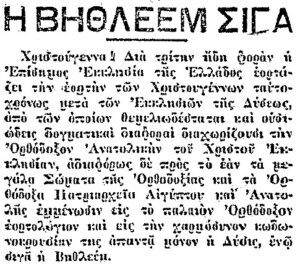A Little More About The Prayer Of The Heart

In a previous post, we mentioned the mystical tradition of hesychasm, a cornerstone of Orthodox spirituality dedicated to inner stillness and contemplative prayer. Today, we continue this journey by exploring one of the most revered and powerful spiritual practices within this tradition: the Jesus Prayer.
The Origins of the Jesus Prayer:
The Jesus Prayer, often articulated as “Lord Jesus Christ, Son of God, have mercy on me, a sinner,” is a short, potent invocation that has its roots in the early Christian monastic tradition. Its origins can be traced back to the Desert Fathers and Mothers of the 3rd and 4th centuries, who sought to live lives of solitary prayer and asceticism in the deserts of Egypt, Palestine, and Syria.
This prayer encapsulates the essence of Christian humility and dependence on God’s mercy, echoing the heartfelt plea of the tax collector in Luke 18:13: “God, be merciful to me, a sinner.” Over the centuries, it has evolved into a fundamental practice within the Eastern Orthodox Church, serving as both a form of prayer and a method of achieving the inner stillness that hesychasm seeks.
The Significance of the Jesus Prayer:
The Jesus Prayer holds profound theological and spiritual significance. At its core, it is a Christocentric prayer, focusing on the name of Jesus, which in itself is believed to carry immense spiritual power. The invocation of Jesus’ name is not merely a verbal expression but a means of experiencing His presence and grace.
Theologically, the prayer is a microcosm of the Orthodox Christian faith. It acknowledges Jesus Christ as the Lord and Son of God, affirming His divinity and humanity. The plea for mercy reflects the Orthodox understanding of human sinfulness and the constant need for divine grace and forgiveness. This humility and recognition of one’s sins are essential components of the Orthodox spiritual path.
The Practice of the Jesus Prayer:
The practice of the Jesus Prayer is both simple and profound, accessible to both monastics and laypeople. Here are some key aspects of its practice:
- Repetition: The prayer is typically repeated continuously, often with the aid of a prayer rope (komboskini) with knots or beads. This repetitive practice helps to focus the mind and draw the heart towards God.
- Inner Stillness: As one progresses in the practice, the Jesus Prayer becomes a means of achieving inner stillness (hesychia). This stillness is not merely the absence of external noise but a deep, tranquil state of the heart and mind where one can encounter God more intimately.
- Perseverance: The journey with the Jesus Prayer requires perseverance and patience. Distractions and thoughts are natural, especially in the beginning. The key is to gently return to the prayer, letting go of other thoughts without frustration.
- Spiritual Guidance: It is highly recommended to undertake the Jesus Prayer under the guidance of an experienced spiritual father or mother. Their wisdom can help navigate the challenges and deepen the experience of the prayer.
The Transformative Power of the Jesus Prayer
The Jesus Prayer, when practiced with sincerity and devotion, can lead to profound spiritual transformation. It cultivates humility, repentance, and a continual awareness of God’s presence. Practitioners often report a deep sense of peace and a closer, more personal relationship with Christ.
Moreover, the Jesus Prayer serves as a bridge between the heart and mind, uniting them in a harmonious act of worship. This union is at the heart of Orthodox spirituality, where prayer is not just an intellectual exercise but an engagement of the whole being with God.
Conclusion:
The Jesus Prayer is a timeless and powerful practice that offers a path to deep spiritual growth and intimacy with God. Its simplicity makes it accessible, while its depth ensures it remains a lifelong journey. As we continue to explore the rich traditions of hesychasm and Orthodox spirituality, may the Jesus Prayer serve as a beacon, guiding us towards the divine presence and inner stillness.
In embracing this sacred prayer, we join countless saints and faithful who have found solace, strength, and transformation in its words. Let us, too, call upon the name of the Lord with humble hearts, seeking His mercy and grace in our daily lives.







